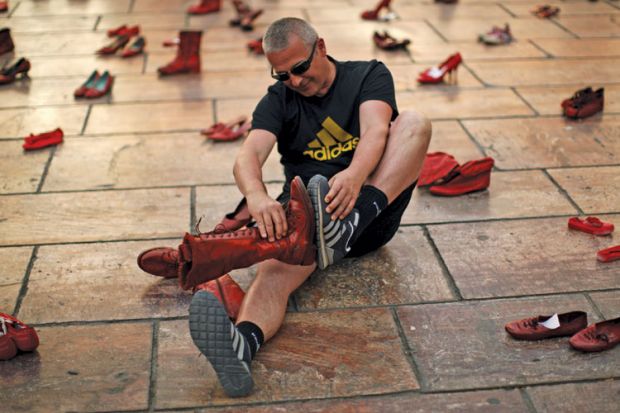A new project to create an “internationally comparable” test of what students learn across European higher education is to launch with a €500,000 (£365,713) grant from the European Union.
This autumn will see the start of a feasibility study on the Measuring and Comparing Achievements of Learning Outcomes in Higher Education in Europe project, known as Calohee.
The project, which has a total budget of €667,600, most of which comes from the EU under the Erasmus+ programme, is an initiative of the Tuning Academy, an international higher education research centre located at the University of Deusto in Bilbao, Spain, and the University of Groningen in the Netherlands.
But the project, which claims to have involvement from “prestigious universities” and university associations, has already drawn criticism from the Organisation for Economic Cooperation and Development, whose own global Assessment of Higher Education Learning Outcomes project has been unable to get off the ground after going through a feasibility study, amid opposition from some universities.
Andreas Schleicher, OECD director for education and skills, said that the “European approach is basically giving up on the idea of measuring outcomes in a serious and comparative way”. He said that the Calohee system would involve “each institution setting its own framework”, an approach that was “not something the OECD would get into”.
Mr Schleicher said that the OECD would continue to look at lessons to be learned from in-country projects to measure learning outcomes in nations such as the US, as the agenda behind Ahelo was “too important to say we just forget about it now”.
An EU official said that the Calohee project is “developing a methodology for an internationally comparable assessment of what students learn, including their skills. The project will also provide the data needed that will enable individual universities to compare and improve their performance.”
She added: “By doing so, the project addresses one of the EU’s main goals in higher education – namely, to improve the quality of teaching and learning, and by that, the relevance and quality of graduates’ skills.”
A statement on Calohee from the International Tuning Academy Groningen – which will use Princeton-based Educational Testing Service for technical support on the project – said that the assessment frameworks would be “tailored to the characteristics of each domain or subject area, taking into account the diversity of missions, orientations and profiles of universities in Europe and their various degree programmes”.
Asked about the differences between Ahelo and Calohee, Robert Wagenaar, coordinator of the Groningen centre, said that while the former “applied a top-down approach and intended to compare (the effectiveness of) national structures”, the latter would use “a bottom-up approach initiated by the university world and their academics” while focusing on “individual universities and in particular their programmes and individual students”.
Calohee is also limited to Europe – as distinct from the global Ahelo – and does not differentiate between subject-specific skills and general skills in the way that Ahelo did, he added.
Dr Wagenaar said that his past experience on the Technical Advisory Committee of Ahelo “has helped Calohee to adapt its approach to deal with some of the challenges faced by Ahelo”.
POSTSCRIPT:
Print headline: EU backs plan to test Continent’s students
Register to continue
Why register?
- Registration is free and only takes a moment
- Once registered, you can read 3 articles a month
- Sign up for our newsletter
Subscribe
Or subscribe for unlimited access to:
- Unlimited access to news, views, insights & reviews
- Digital editions
- Digital access to THE’s university and college rankings analysis
Already registered or a current subscriber? Login









